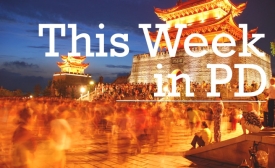united states
Remember the pivot to Asia? The big signature move of first-term Obama foreign policy? Some called it a “strategic rebalancing.” We were going to reset our priorities, put the conflicts of the Middle East behind us, and devote big efforts to creating and implementing a strategy to deal with the vital strategic moves America needed to make to account for the rise of the world’s fastest-growing region.

Can China's attempts at asserting its influence globally solidify its world power status?
The exhibition tells how the IEP came about, and chronicles the program's achievements and the environmental technologies Taiwan has shared with other countries, including ways to clean polluted sites and turn electrical and electronic waste into valuable products.
The NBA is the first U.S. professional league to visit sports-crazy Cuba since the declaration of detente between the Cold War enemies late last year. Stars such as former MVP Steve Nash and Hall of Fame inductee Dikembe Mutumbo will open a four-day training camp Thursday to wage athletic diplomacy and boost the profile of Cuba's arguably fourth most-popular sport, after baseball, boxing and soccer.
In periods of the 19th and 20th centuries, the United Kingdom and United States maintained absolute dominance in a unipolar world, which was why they were called "British century" and "American century." Based on this, predictions of a so-called "Chinese century" must meet two preconditions -- a unipolar international configuration and absolute Chinese dominance.
How might a Republican White House engage Asia?(...)At a Council on Foreign Relations symposium on U.S. Rebalance to Asia held earlier this week, Daniel Russel, Assistant Secretary of State for East Asian and Pacific Affairs, cautioned against the “politics of China” in the 2016 presidential campaign. Republican candidates might consider three elements in appropriating the rebalance within a Republican foreign policy rubric.
First and foremost, the Maritime Silk Road is designed to pacify neighboring countries threatened by China’s aggressive territorial claims in the South China Sea. Curiously, China has attempted to both aggravate tensions among its Southeast Asian neighbors and soothe them at the same time, contrary to its normal pattern of swinging back and forth between aggressive brinksmanship and diplomatic rapprochement (such as in China’s relationship with Taiwan or its cutting off and then reestablishing of military-to-military ties with the United States).
Pope Francis, who has taken a public role in U.S.-Cuba relations, will visit Cuba on the way to the United States this fall, the Vatican announced Wednesday. (...)Pope Francis, who followed his predecessors Pope Benedict XVI and Pope John Paul II in visiting Cuba and calling for an end to U.S. travel and financial restrictions on the nation, wrote letters to Obama and Cubaan President Raúl Castro urging them to settle outstanding issues and clear the way for a deal.







